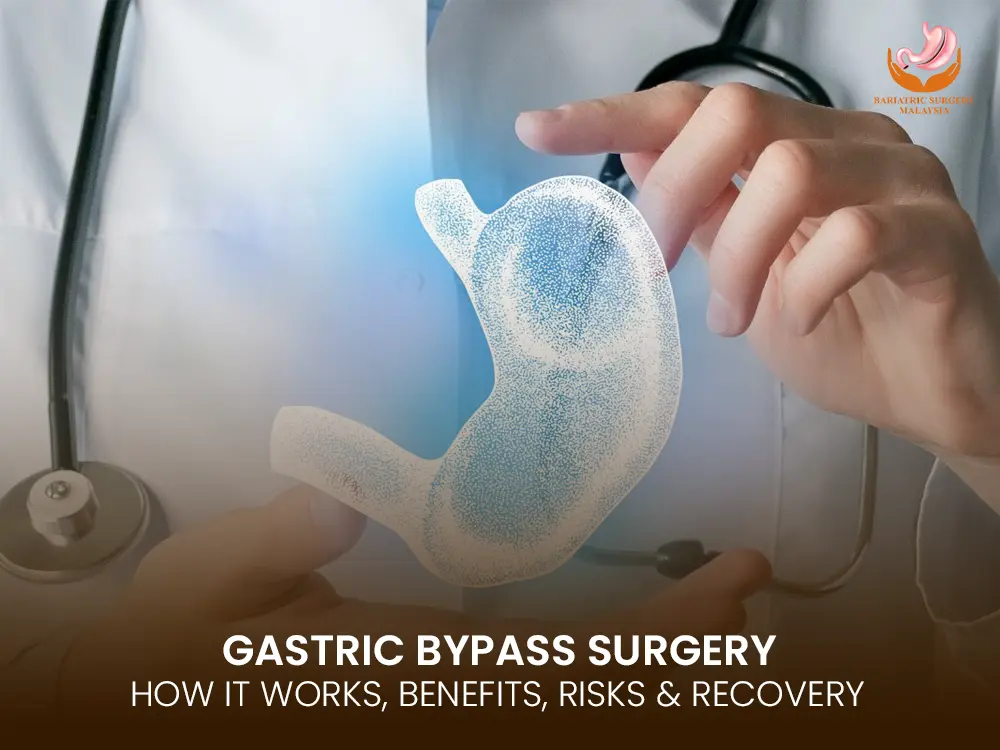A stomach operation, often part of bariatric surgery, has become a significant solution for people struggling with severe obesity. For many, this procedure can lead to profound health benefits, including substantial weight loss and improved quality of life. This article will explore key aspects of a stomach operation, detailing its types, benefits, risks, and what to expect during recovery.
What is a Stomach Operation?
A stomach operation refers to surgical procedures designed to help individuals lose weight by altering the stomach and sometimes the digestive tract. This type of surgery limits food intake, changes nutrient absorption, or both. It’s often recommended for individuals who have not achieved lasting weight loss through diet and exercise alone and have obesity-related health conditions.

Types of Stomach Operations for Weight Loss
There are several types of bariatric surgeries, each tailored to different needs and body types. Here’s an overview of the most common stomach operations:
1. Gastric Bypass (Roux-en-Y Gastric Bypass)
One of the most widely performed bariatric surgeries, this operation involves creating a small pouch at the top of the stomach and connecting it directly to the small intestine. This bypasses most of the stomach and some of the small intestine.
Benefits:
- Significant weight loss.
- Improvement in obesity-related conditions such as type 2 diabetes.
Considerations:
- Permanent changes to the digestive system.
- Potential for nutrient deficiencies.
2. Sleeve Gastrectomy
This operation involves removing a large portion of the stomach, leaving a tube-shaped section that holds less food.
Pros:
- Simpler than gastric bypass with fewer complications.
- Reduced risk of nutrient deficiencies compared to gastric bypass.
Cons:
- Irreversible.
- Some patients experience heartburn or acid reflux post-surgery.
3. Adjustable Gastric Band
Also known as lap band surgery, this involves placing an inflatable band around the upper part of the stomach to create a smaller stomach pouch. The band can be adjusted or removed as needed.
Advantages:
- Minimally invasive.
- Adjustable and reversible.
Limitations:
- Slower weight loss compared to other procedures.
- Higher risk of needing follow-up surgeries to adjust or remove the band.

Benefits of Undergoing a Stomach Operation
Opting for a stomach operation can bring a range of physical and psychological benefits:
- Significant Weight Loss: Most patients experience substantial and sustained weight loss, improving their mobility and overall health.
- Reduction in Obesity-Related Conditions: Bariatric surgery has been shown to decrease or even resolve conditions like type 2 diabetes, sleep apnea, high blood pressure, and joint pain.
- Enhanced Quality of Life: With improved health and energy levels, many patients report higher self-esteem and a better overall quality of life.
Risks and Potential Complications
Like any surgery, a stomach operation comes with risks. It’s essential to weigh these against the benefits and discuss them thoroughly with your healthcare provider:
Short-Term Risks:
- Infection at the surgical site.
- Blood clots.
- Adverse reactions to anesthesia.
Long-Term Complications:
- Nutritional deficiencies, especially after bypass surgeries.
- Dumping syndrome, characterized by nausea, vomiting, or diarrhea when consuming high-sugar foods.
- Stomach pouch stretching or ulcers.
Preparing for a Stomach Operation
Preparation is key for a successful stomach operation and smooth recovery. Here’s what to keep in mind before surgery:
1. Pre-Surgery Assessments
- A comprehensive medical evaluation will be conducted to determine if you are a suitable candidate.
- Nutritional counseling is provided to help adjust your diet pre-surgery.
2. Lifestyle Adjustments
- Patients are usually advised to start a high-protein, low-calorie diet before surgery to shrink the liver and make the operation safer.
- Quitting smoking is essential as it can interfere with healing.
The Recovery Process Post-Stomach Operation
Recovery timelines and experiences vary depending on the type of stomach operation performed. Here’s what you can generally expect:
Immediate Recovery:
- Hospital stays typically last 1-3 days, depending on the procedure.
- Pain management is provided, and patients are encouraged to move as soon as possible to reduce blood clot risks.
Dietary Changes:
- A liquid diet is required initially, gradually transitioning to pureed and soft foods before returning to a regular diet.
- Hydration is crucial to prevent dehydration, as the smaller stomach can only hold limited amounts of liquid.
Physical Activity:
- Light walking is encouraged within the first week of recovery.
- More intense physical activities can resume after approval from your healthcare provider, usually within 4-6 weeks.
Psychological Impact and Support
Undergoing a stomach operation can bring significant emotional and psychological changes. It’s not uncommon to experience feelings of euphoria from initial weight loss, followed by challenges related to body image and adapting to new eating habits.
Support Groups: Joining a bariatric surgery support group can provide motivation, encouragement, and helpful tips from people who have undergone similar procedures.
Therapy and Counseling: Consulting with a therapist specializing in weight loss or body image issues can be beneficial for long-term mental health.
Long-Term Considerations
A successful stomach operation requires commitment to a healthy lifestyle. Regular follow-up appointments are essential to monitor weight loss progress, address any complications, and ensure nutritional needs are met.
Nutritional Supplements: Daily vitamins and minerals are typically needed to avoid deficiencies, especially after procedures like gastric bypass.
Annual Check-Ups: These visits allow for early detection and management of potential complications, ensuring long-term success and health.

FAQs About Stomach Operations
Q1: Is a stomach operation reversible?
Some types, like the adjustable gastric band, are reversible. Others, such as sleeve gastrectomy and gastric bypass, are permanent.
Q2: How much weight can I expect to lose after a stomach operation?
Patients typically lose 50-70% of their excess weight within the first year post-surgery, depending on the type of procedure and adherence to post-surgery guidelines.
Q3: Will I have to follow a special diet for the rest of my life?
Yes, maintaining a balanced diet rich in proteins, vitamins, and minerals is essential for sustained health and weight loss.
Q4: How soon can I go back to work after the operation?
Most patients can return to light work duties within 2-4 weeks, but this depends on the type of operation and the individual’s recovery.
Q5: What lifestyle changes are necessary after surgery?
Commitment to regular exercise, portion control, and avoiding high-sugar and high-fat foods is critical to achieving long-term success.
Q6: Can I still get pregnant after a stomach operation?
Yes, but it’s advisable to wait 12-18 months post-surgery before trying to conceive to allow your body to stabilize.
A stomach operation can be a transformative experience that not only aids significant weight loss but also improves health and lifestyle. By understanding the process, preparing adequately, and adhering to post-operative care, patients can achieve lasting, positive results.



